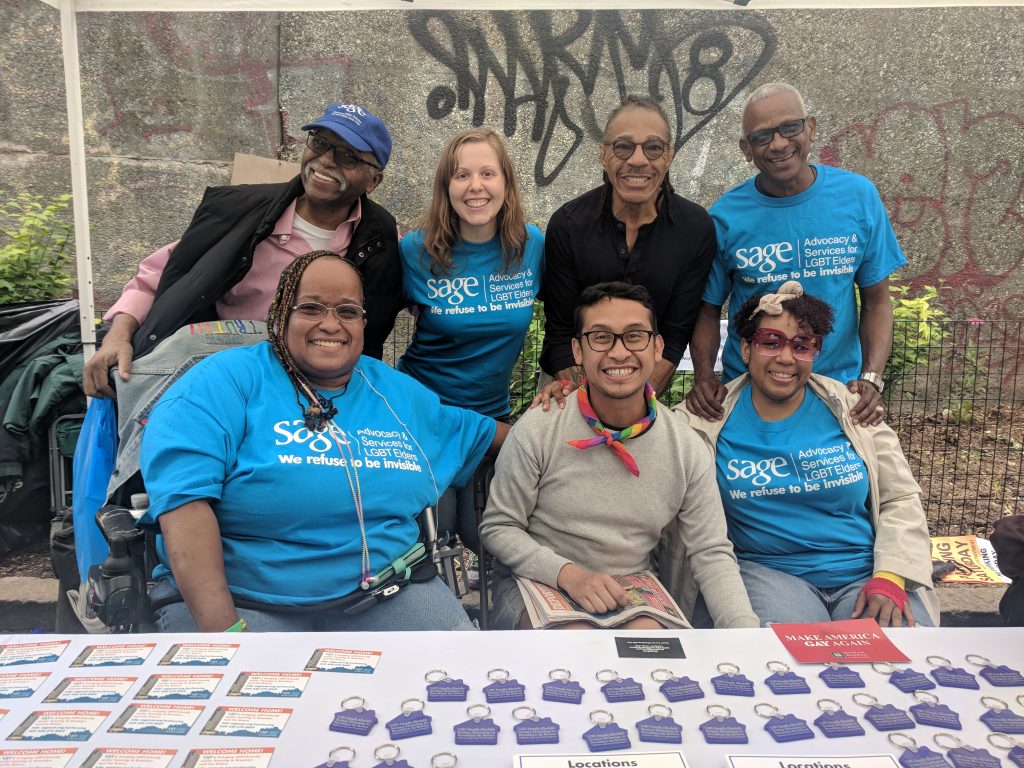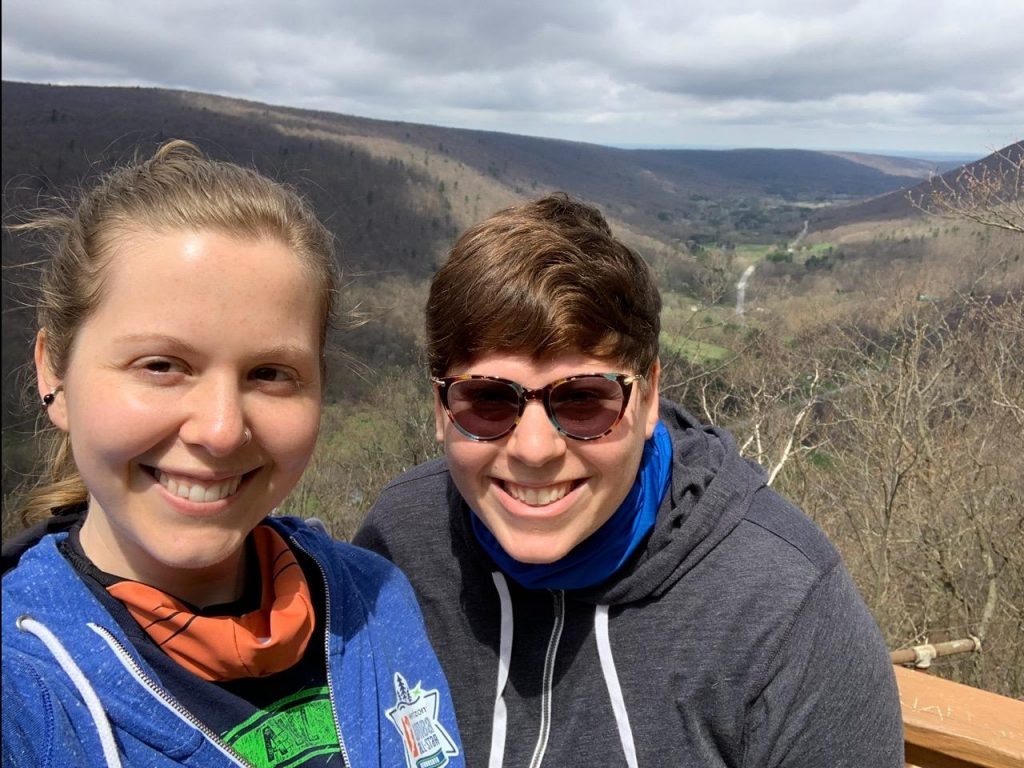By Jenna McDavid. This article originally appeared on the SEARAC blog: Our Voices.
I love that June is both Pride Month and Immigrant Heritage Month, because at SEARAC, it gives us an opportunity to celebrate so many members of the Southeast Asian American communities — and embrace all aspects of their identities. Southeast Asian American members of the LGBTQ+ communities are centered, and the roots of SEAA families and stories are recognized as the strengths that they are.

Jenna (back row, second from left) tabling with SAGE staff and volunteers at Harlem Pride in 2018. Credit: Jenna McDavid.
In SEARAC’s Our Voices archive, we have incredible first-person accounts of what LGBTQ+ heritage means to our staff and partners. My colleague Kham S. Moua wrote in 2020 about the importance of solidarity among movements and communities. “I choose to fight alongside the LGBTQ community and Black Lives Matter because I know that the Southeast Asian American community cannot free ourselves alone,” he shared in his Pride Month piece. We are also proud to feature interviews with LGBTQ+ SEAA community leaders, like these brief but powerful conversations with Kevin Lam, Xay Yang, Jonathan Vorasane, and Zon Moua. And just this month, our Communications Intern, Anna Dang, talked to Tracy Nguyen and David Bouttavong about what Pride means to them. These heartfelt, moving interviews have definitely been the highlight of my Pride Month this year.
Additionally, SEARAC’s ongoing work with the Diverse Elders Coalition (an organization for which I served as National Director for several years) gives us an important opportunity to pool our resources and work in collaboration with others in the field, like SAGE, to craft policy and programming that will support LGBT older adults. Our resources for providers who serve family caregivers — the foundational research for which identified important needs of LGBT caregivers of color — is a valuable tool to help healthcare and social services workers better care for those who care for our families.
Finally, June is an important opportunity to shine a light on the work of our partners and allies in the field who are supporting LGBTQ+ Asian Americans, Native Hawaiians, and Pacific Islanders. A few examples in SEARAC’s orbit include APIQWTC (API Queer Women and Transgender Commuinity), Qkhmer (Queer Khmers), and NQAPIA (National Queer API Alliance). If you are not already following these groups and paying attention to their valuable research, experiences, programming, and calls to action, consider this the perfect moment in which to begin doing so.

Jenna (left) and her partner, Carly, hiking in Ontario County, NY. Credit: Jenna McDavid.
While June is also my first month as an official full-time staff person at SEARAC, I have been lucky to have worked with SEARAC previously as a consultant and as staff of the Diverse Elders Coalition, of which SEARAC is a founding member. I reflect often on my work with SEARAC in the context of my own family. My partner and I just celebrated 10 years of being together, and we are grateful to be embraced and lovingly accepted by our extended families. My grandfather immigrated to the United States from Italy in the early part of the 20th Century in search of a better life; my partner’s grandparents fled eastern Europe as the Nazis and the Holocaust threatened their families. This month — and every month — I commit to working toward a more equitable world for immigrant and refugee communities, LGBTQ+ communities, and all who have faced persecution for who they are, who they love, or where they come from.
Jenna is SEARAC’s Communications and Development Manager. You can email her here.
The opinions expressed in this article are those of the author and do not necessarily reflect those of the Diverse Elders Coalition.

